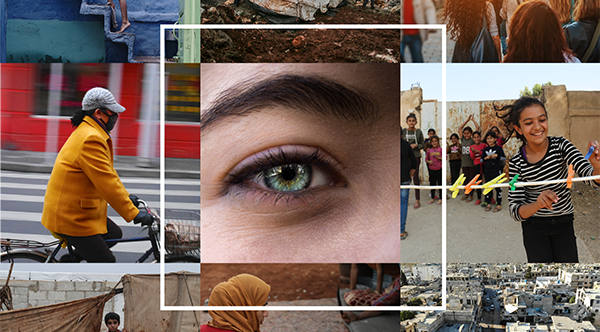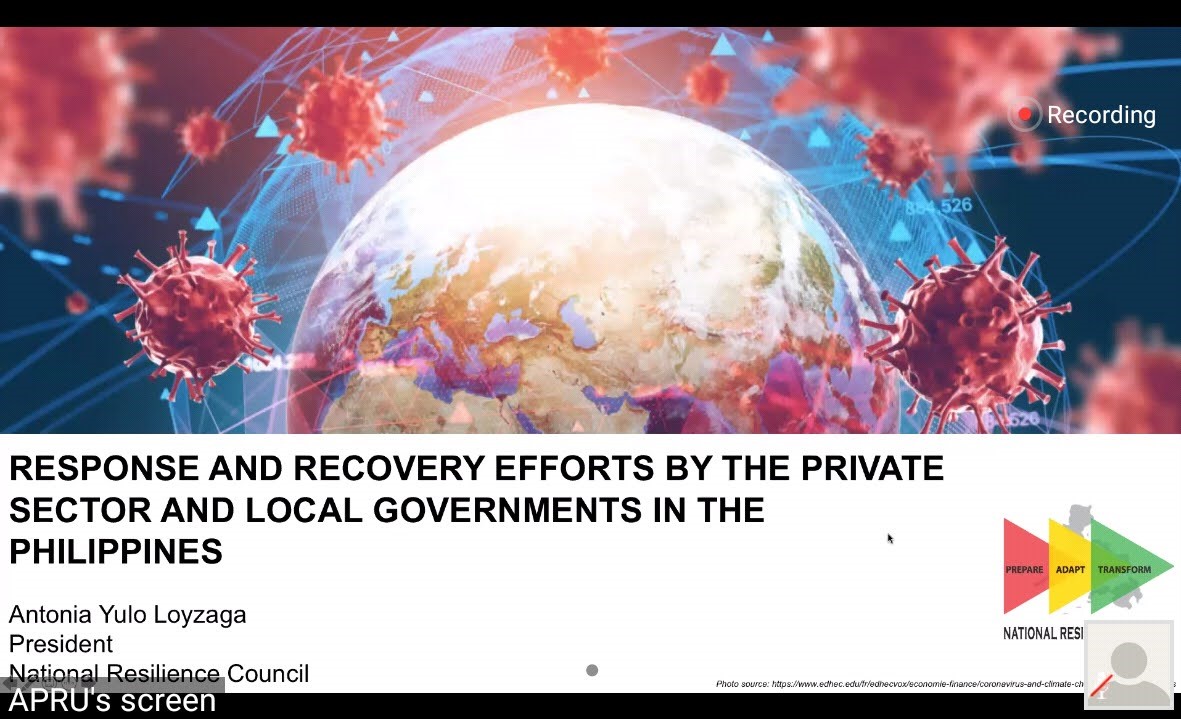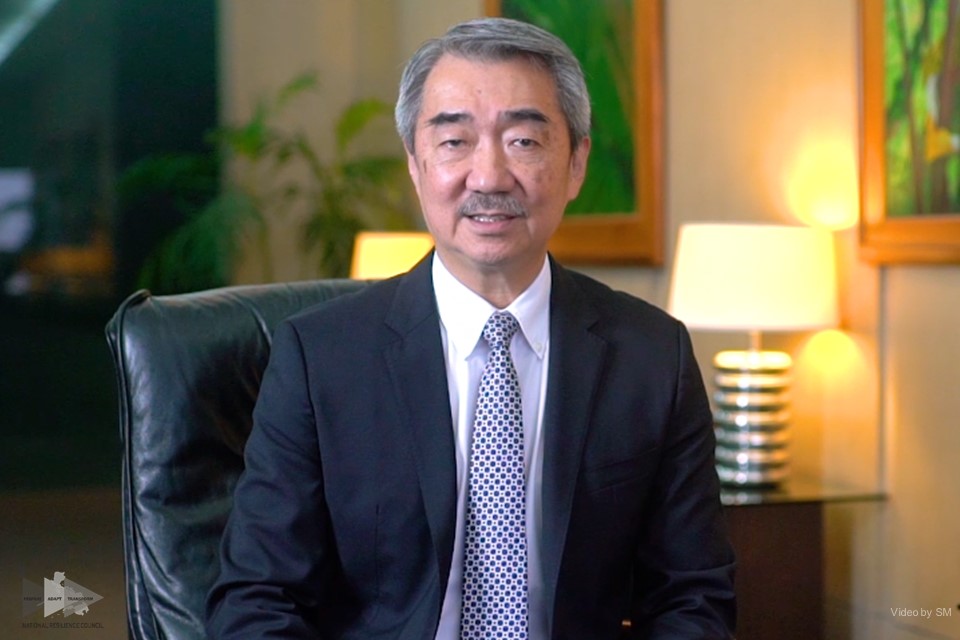Author: Mary Francis Grace Marzan
-

An update from Mami Mizutori, UN Secretary-General’s Special Representative for Disaster Risk Reduction — 13 July 2020
In the newsletter circulated by United Nations Office for Disaster Risk Reduction (UNDRR), UN Secretary-General’s Special Representative for Disaster Risk Reduction Mami Mizutori writes about the lessons brought about by the COVID crisis: with good governance being at the heart of disaster resilience and the need for better recovery strategies that are climate-conscious and environmentally sustainable. I…
-

Web-based Geospatial Risk Database for COVID-19 Pandemic Response and Recovery
The National Resilience Council of the Philippines forged a partnership with the Coastal Cities at Risk in the Philippines Project of the Ateneo de Manila University, Xavier University-Ateneo de Cagayan, and EpiMetrics, Inc. to implement the Web-based Geospatial Risk Database for COVID-19 Pandemic Response and Recovery training program. Its first phase was launched from June…
-

An update from Mami Mizutori, UN Secretary-General’s Special Representative for Disaster Risk Reduction — 25 June 2020
In the newsletter circulated by United Nations Office for Disaster Risk Reduction (UNDRR), UN Secretary-General’s Special Representative for Disaster Risk Reduction Mami Mizutori writes an update on the on-going efforts and initiatives by DRR Organizations and Advocates in the fight against COVID-19. There is worldwide recognition that the fight against COVID-19 will mainly take place…
-

Response and Recovery Efforts by the Private Sector and Local Governments in the Philippine
NRC President, Ms. Toni Yulo-Loyzaga spoke about the Response and Recovery Efforts by the Private Sector and Local Governments in the Philippine during the Multi-Hazards Approach and COVID-19: Flattening the Curve and Early Recovery Lessons Webinar organized by APRU- Association of Pacific Rim Universities Watch the full session below:
-

‘Dogged pragmatism’ needed to save Ocean: UN Special Envoy
Author: UN News | Date: 2 June 2020 ‘Dogged pragmatism’ is needed to save the Ocean as the world grapples with the coronavirus pandemic, according to the UN Secretary-General’s Special Envoy for the Ocean. Peter Thomson, who hails from the Pacific Ocean island of Fiji, spoke to UN News ahead of World Oceans Day marked…
-

Time for nature
Author: United Nations The foods we eat, the air we breathe, the water we drink, and the climate that makes our planet habitable all come from nature. For instance, each year, marine plants produce more than a half of our atmosphere’s oxygen, and a mature tree cleans our air, absorbing 22 kilos of carbon dioxide,…
-

National Resilience Council COVID-19 Knowledge Series
In April 2020, the National Resilience Council (NRC), in partnership with ARISE Philippines, Zuellig Family Foundation, and the Makati Business Club, launched its 4-part COVID-19 Knowledge Series: Expert Dialogue on Resilience, Public Health, and Human Security. This series aims to provide a platform for informed multi-stakeholder dialogue; bridge global knowledge and expertise with local practice;…
-

Urban resiliency: Key to sustainability in 21st century Philippines
Source: The Philippine Star | Author: Hans T. Sy | Date: May 30, 2020 Filipinos have direct experiences with the devastating effects of climate change. According to the UN Office for Disaster Risk Reduction (UNDRR), the Philippines ranks fourth among countries worldwide most affected by extreme weather events over a 19-year period, from 1998 to 2017.…
-

The digital challenge
Source: The Philippine Star – Filipino Worldview | Author: Ambassador Roberto R. Romulo | Date: May 29, 2020 Recently, the National Resilience Council (NRC) held its 4th Webinar conference hosted by the Makati Business Club, this time focusing on economic recovery and resilience. The guest speaker was BSP Governor Ben Diokno. DND Secretary Delfin Lorenzana and I…